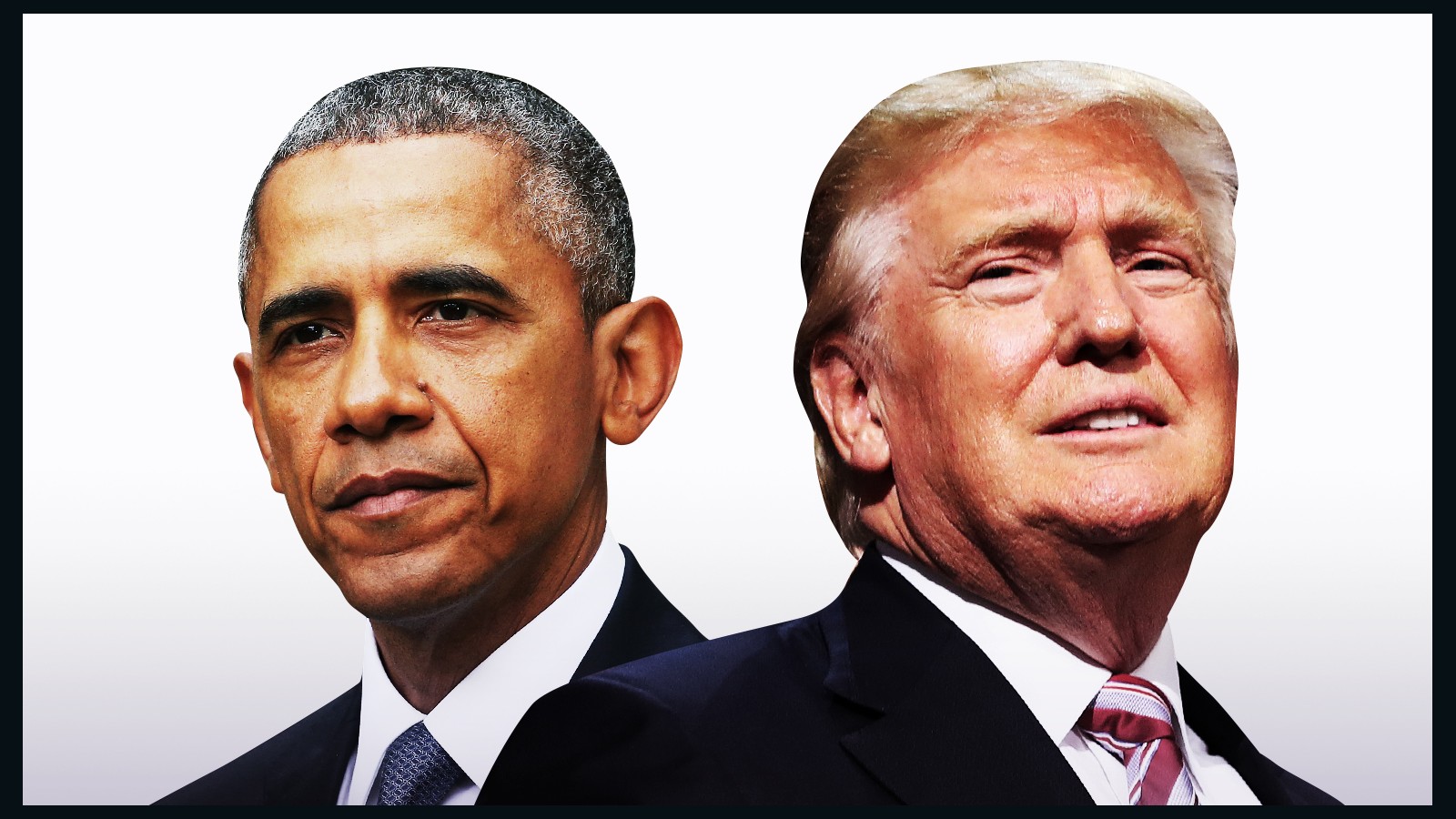
During his presidential campaign, Donald Trump accused Barack Obama of treating America's adversaries "with tender love and care" while our allies were "snubbed and criticized by an administration that lacks moral clarity."
"We've picked fights with our oldest friends," Trump declared in his April 2016 foreign policy speech, adding "We've had a president who dislikes our friends and bows to our enemies."
Trump was absolutely right. From Iran to Cuba, Obama bent over backwards to court our adversaries. At the same time, he mistreated our closest allies - allowing Israel to get bullied by the U.N. Security Council and canceling missile defense deals with Poland and the Czech Republic in a misguided effort to curry favor with Moscow.
So why, less than two weeks into his presidency, is Trump doing precisely what he criticized Obama for doing - picking fights with one of our oldest friends, Australia, while treating our adversary, Russia, "with tender love and care"?
When Fox News's Bill O'Reilly challenged Trump on his praise for Vladimir Putin this weekend, declaring "Putin's a killer," Trump responded "There are a lot of killers," adding "We've got a lot of killers. What, do you think our country's so innocent?"
Had Obama said these words, every conservative in America would have erupted with outrage. Equating U.S. actions with those of our enemies is a tried-and-true tactic of the left.
Remember how appalled we were when Obama declared that America should get off its "high horse" in criticizing Islamic terrorists because of the "terrible deeds" committed "in the name of Christ" during the Crusades?
Or when he drew a moral equivalence between Iran's decades of terrorist murder and the role the CIA played in the 1950s' "overthrow of a democratically-elected Iranian government" in his infamous Cairo speech?
Why would Trump follow Obama's model, and draw the same false moral equivalence between the United States and Russia?
At the very moment Trump was speaking with O'Reilly, Russian opposition activist Vladimir Kara-Murza lay fighting for his life in a Moscow hospital, after being poisoned under mysterious circumstances. He was similarly poisoned in 2015, and barely survived. His crime? Lobbying Congress to impose economic sanctions against Russia under the Magnistky Act, a law that itself was named for a Russian human rights lawyer who was beaten to death in Putin's jails. Kara-Murza and Magnitsky are not alone. In 2015, opposition activist Boris Nemtsov was assassinated by gunmen on a bridge within sight of the Kremlin. And in 2016, a British judge found that Putin was likely behind the assassination of Alexander Litvinenko, a former Russian spy turned Putin critic, who was poisoned in London with radioactive polonium-210.
Trump says he wants to get along with Putin. There's nothing wrong with trying. But getting along with Putin does not require excusing this campaign of political murder, or suggesting that the U.S. acts similarly. As William F. Buckley once famously put it, "To say that the CIA and the KGB engage in similar practices is the equivalent of saying that the man who pushes an old lady into the path of a hurtling bus is not to be distinguished from the man who pushes an old lady out of the path of a hurtling bus: on the grounds that, after all, in both cases someone is pushing old ladies around."
Worse still, Trump's defense of Putin came just days after he scolded Australian Prime Minister Malcolm Turnbull over an agreement he had reached with President Obama to take in 1,250 refugees held at Australian detention centers from Iran, Iraq, Somalia and other countries. Yes, it was poor form for Turnbull and Obama to make this deal after Trump was elected. Yes, Australia was stupid to press Trump to take in a group refugees that they themselves refuse to let into their country - many of whom hailed from the very nations for which Trump had just temporarily suspended immigration. But Australia is also one of our closest allies - a nation that has fought beside us in every war we have fought in the last century from World War I to Iraq and Afghanistan. There was no reason for Trump to tell Turnbull that theirs was "the worst call by far" he has had with any world leader - including, apparently, Vladimir Putin. The leader of America's closest ally deserved at least the same kind of deference that Trump seems to be willing to extend to the leader of one of our greatest adversaries.
Trump told the National Prayer Breakfast in Washington that we have to "get tough" because "the world is in trouble." He's correct. For eight years, the Obama administration projected weakness in the world, and the consequences have been devastating - from the rise of the Islamic State, to Syria's brutal use of chemical weapons on its own people, to the spread of Iranian hegemony in the Middle East, North Korea's nuclear and missile tests, and China's cyberattacks on America and building of military bases on disputed islands in the South China Sea.
We do need to get tough, and Trump is doing so. He has imposed new sanctions on Iran for its illegal ballistic missile tests - a sea change from Obama, who delivered pallets of unmarked foreign currency to Tehran on secret planes. And instead of just droning terrorists, like Obama did, Trump put boots on the ground, sending a special operations team to Yemen to take out al-Qaeda leaders and capturing intelligence that Obama would have vaporized.
This is all to the good. But as Trump jettisons Obama's policies of weakness, he should also banish Obama's troubling habit of treating our allies worse than our enemies - and of drawing a moral equivalence between our actions and theirs.
Comment by clicking here.
Previously:
• 01/31/17: Trump should go nuclear on his Supreme Court nominee
• 01/18/17: How Trump can make Mexico pay for the bleeping wall
• 01/10/17: Why Russia hacking report is an indictment of Obama, not Trump
• 12/14/16: Trump's soft spot for illegal immigrants
• 12/07/16: Trump's Taiwan call wasn't a blunder. It was brilliant
• 11/23/16: 'Hamilton' and the implosion of the American left
• 11/15/16: The fall of the house of Obama is coming, and it's his own fault
• 11/02/16: Get ready for four more years of Clinton scandals
• 10/27/16: WikiLeaks is exposing Clinton's duplicity, but it's no hero
• 10/16/16: Hillary Clinton is a threat to religious liberty
• 09/20/16: Hillary Clinton tells dreadful lies
• 09/14/16: Bill Clinton's terrorism strategy led to 9/11. Hillary Clinton's is the exact same thing
• 07/28/16: The Dems' well-deserved WikiLeaks blowback
• 07/18/16: We were warned. Get ready for more terror attacks, folks
• 07/08/16: The FBI should release the memo
• 06/21/16: Trump neutralizes Dems' attacks by adopting their positions
• 06/16/16: Obama still in denial even after losing life and death game of connect-the-dots
• 04/12/16: What Trump can learn from Reagan and the '76 delegate fight
• 04/06/16: Gaffes show Trump is the left-wing caricature of a conservative
• 03/18/16: Stop blaming Trump supporters for campaign violence
• 02/22/16: Hey, Bernie: You're blowing it by refusing to attack Hillary over her scandals
• 02/02/16: Political establishment can learn a few things from hockey's all-star enforcer
• 01/26/16: Hillary's email excuses are falling apart
• 12/15/15: How Rubio is quietly killing ObamaCare
• 10/21/15: Yes, George W. Bush kept us safe
• 10/14/15: Finding a consensus conservative for the GOP


 Contact The Editor
Contact The Editor
 Articles By This Author
Articles By This Author